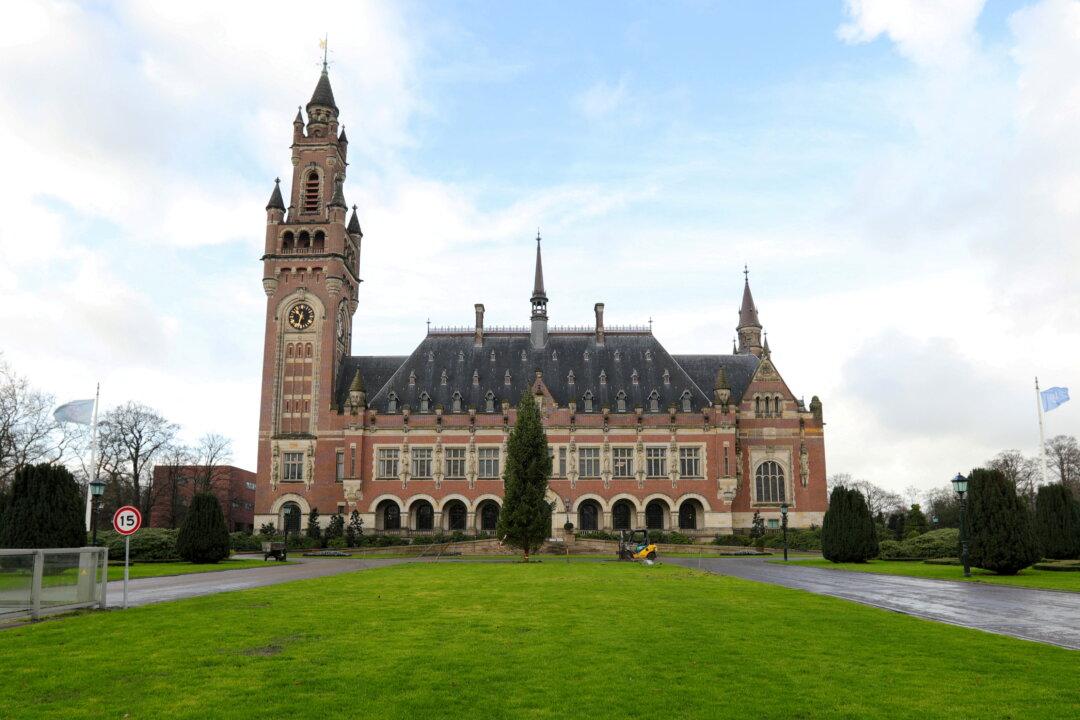THE HAGUE—Russia boycotted hearings at the U.N.’s highest court on Monday during which Ukraine is seeking an emergency order to halt hostilities, arguing that Moscow has falsely applied genocide law to justify its invasion.
Hearings began at the International Court of Justice (ICJ) without legal representation for Russia.





